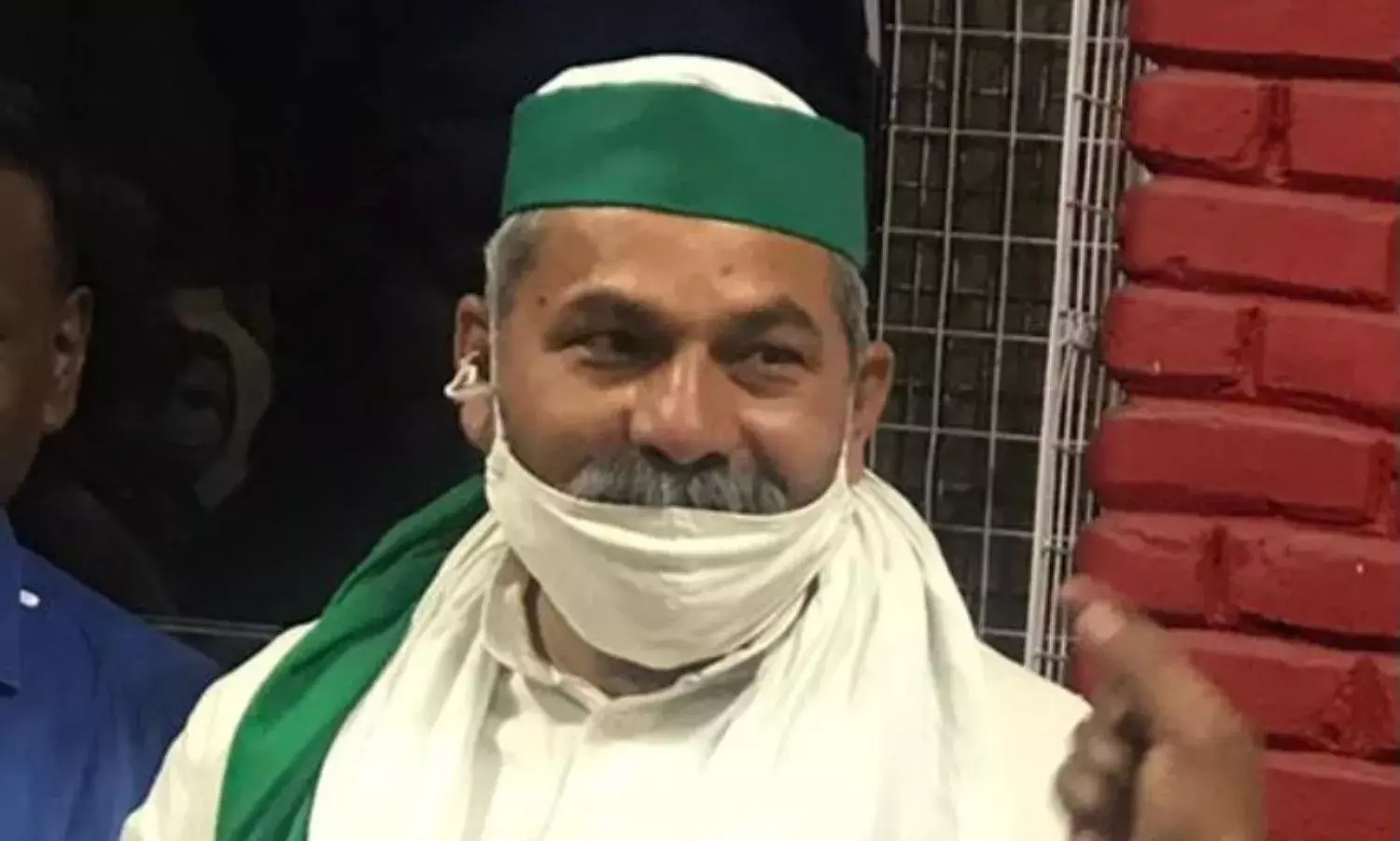The Shudras at the Heart of Tikait
A new way to fight Dwija hegemony
Rakesh Tikait holding The Shudras—Vision for a New Path book with his two hands at his heart shows a new shift in the Indian and more particularly in the North Indian agrarian caste sociopolitical consciousness.
North Indian Shudras more particularly the Jats, Gujjars, Patels became the backbone of the right wing human muscle and vote power in the post Mandal political churning. The Mandal Commission Report defined all Shudras, including Jats, Gujjars, Patels, Marathas and so on, as the Other Backward Classes, by shifting the historical category of Shudra into a constitutional category.
But the top agrarian castes, particularly Jats and Gujjars who are all around Delhi, opted out of being in the OBC category as it was seen as moving downwards but not up.
The rural intellectuals of the agrarian communities in the early 1990s wanted to claim Kshatriya status, as Skatriyas were the historical rulers.
They did not understand the role of reservations in producing an intellectual class from each Shudra caste. What university and college education—that too English medium education—and bureaucratic power produce could have come into the hands of substantial numbers of Gujjars and Jats. The newly English educated class in each caste plays a key role in running not only the Delhi system, it would have changed their attitude towards Dalits and other minorities.
Jats thought that their dominant agrarian base would give them power, knowledge and they could claim Skatriya status. They thought it would automatically give them national political power too. This proved to be totally wrong.
All the unreserved Shudra castes like Jats, Gujjars could have produced intellectuals that could play a critical role in central universities and research institutions. They have not so far produced political leaders with a national and international vision. This is because unlike the Dwijas the Jats and Gujjars never produced English educated intellectuals who see through the Dwija leadership.
Now there is a new awakening, as the right wing forces are running the Delhi administrative structures without much Jat, Gujjar or other Shudra agrarian castes within the power structures. Quite tragically even in the central universities run by Muslim minorities like Aligarh and Jamia Millia Islamia the presence of Shudra faculty members is minimal.
They were used for their anti-minority agendas but there few available intellectuals were not allowed to share power in national structures. And once in power the Shudras were further sidelined.
The Dwijas as defined in The Shudras—Vision for a New Path constitute Brahmins, Banias, Kayasthas, Khatris and Ksatriyas, who have no role in food or other agrarian production.
The Jats of UP, Punjab and Haryana were the main agents of the Green Revolution. But they could not become industrialists. Most Shudra castes in the country have not benefited in the massively grown industrial economy as is made very clear by the Shudra Team’s study in the book, in the chapter ‘Caste and Political Economy’. Jats and Gujjars around Delhi which runs the national power structures realise that at the Delhi high tables they have no share because of a lack of organised and modern educational efforts. Jats have no adequate representation in central universities like JNU and Delhi University.
In this situation the Shudra identity will give them a new way to fight the Dwija hegemony. Tikait seems to have realised the importance of the book.
Jats are the most active fighters against the new farm laws. Tikait seems to have realised the massive privatisation agenda is meant to de-reserve the jobs that OBCs, Dalits and Adivasis are benefiting from in a marginal way. Jats have been asking for inclusion of their caste in the reservation list. Whereas the dominant right wing is undercutting the reservation system.
The boook has initiated a conversation around all Shudras. They must assert their Shudra roots with dignity and respect. Tikait holding the book at his heart indicates the new mood of North Indian Shudras.
Kancha Ilaiah Shepherd is a political theorist, social activist and editor of The Shudras: Vision for a New Path along with Karthik Raja Kuruppusamy





